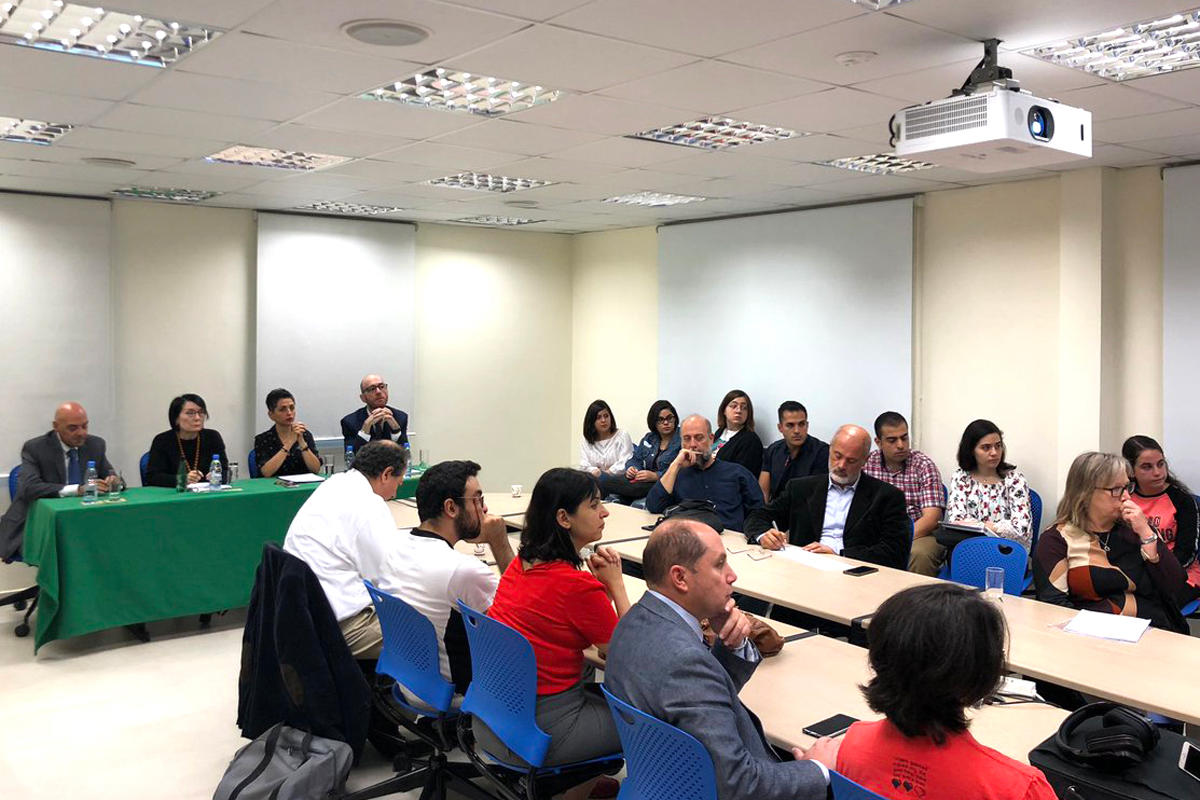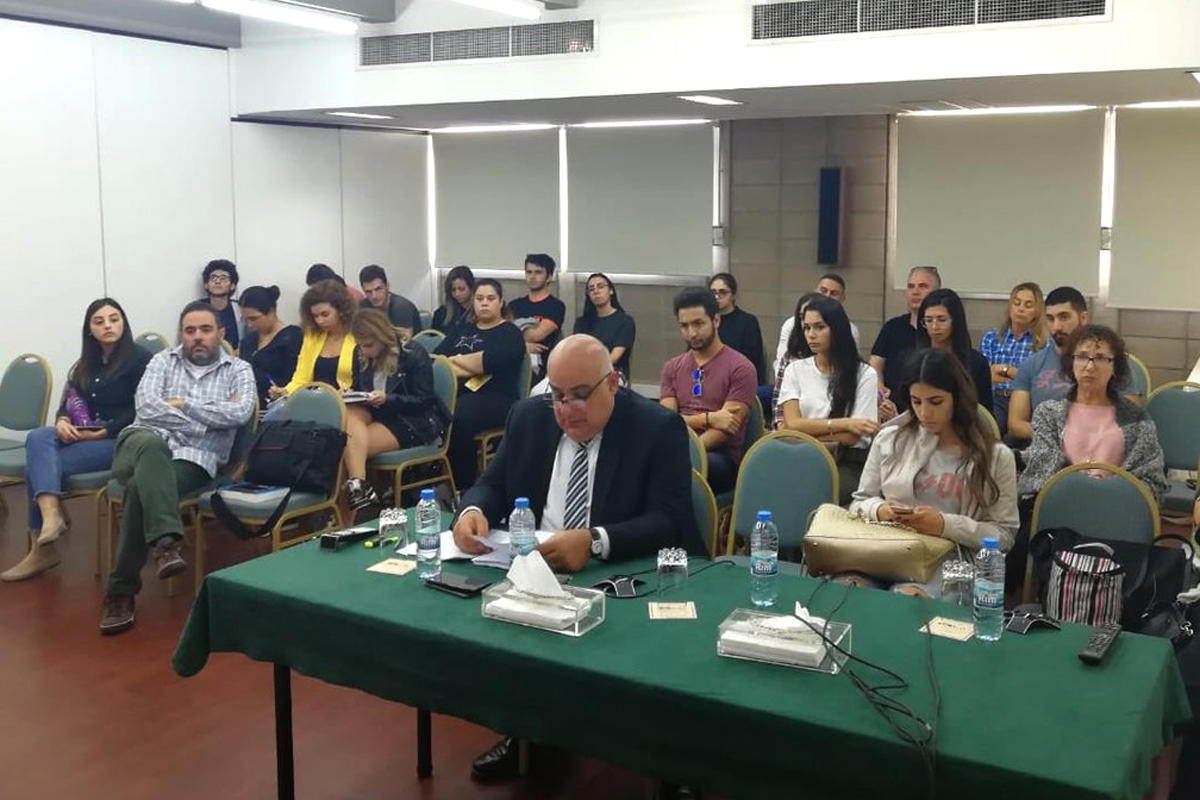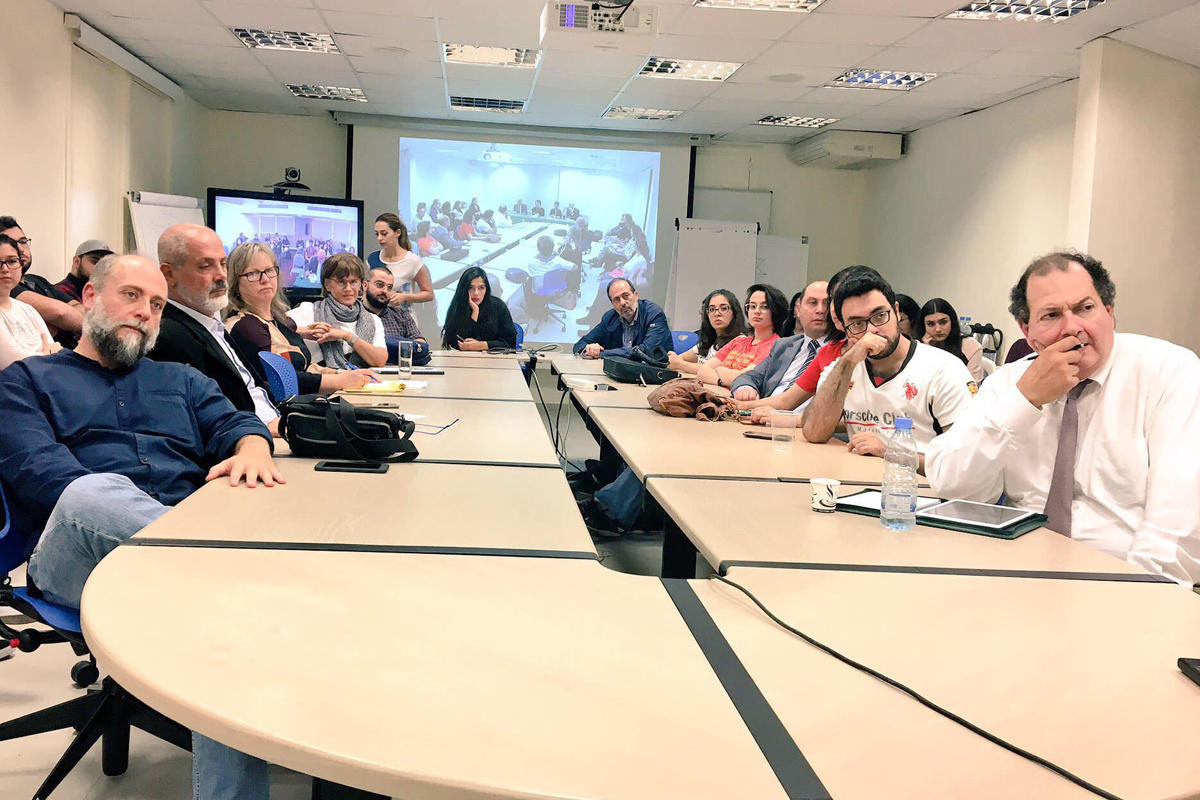What Will Happen After America Votes?
A panel debates what the midterm elections mean for American foreign policy, gender, and social welfare.
On November 6, millions of Americans will vote for 435 seats in the House of Representatives and 35 seats out of 100 in the Senate.
The School of Arts and Sciences’ Department of Social Sciences organized a panel on both campuses to debate what the midterm elections mean for American foreign policy, gender, and social welfare.
The panelists were Assistant Professor of Political Science and International Affairs Jeffrey G. Karam, Professor of Political Science Sami Baroudi, Lecturer of Social Work Michele Kelly, Director of the Institute for Women’s Studies in the Arab World Lina Abirafeh and Dean of Students Makram Ouaiss, who spoke from Byblos via video conferencing.
Dr. Karam, the organizer of the event, launched the discussion by emphasizing how the results of the elections could either bolster President Donald Trump’s agenda or simply constrain some ongoing policy initiatives in the last two years of his first term in office.
Dr. Ouaiss, who is also an assistant professor of political science and international affairs, was the first to speak. In the two years since Republican Donald Trump’s election, and with the Democrats holding only minorities in the Senate and House, he said, there is increasing concern “about human rights issues, issues pertaining to women’s and minority rights, and how the matter of immigration is being handled.”
In this regard, civil rights groups are increasing efforts to “really back their candidates across the political spectrum,” ahead of the mid-term elections in the hope that Democrats will win back some power on the federal and state levels.
For her part, Dr. Abirafeh said women in the past two years have become more motivated to run for office, driven primarily by Trump’s election and a relentless anti-women agenda by the Republicans.
She also referred to the recent confirmation of Brett Kavanaugh to the Supreme Court, following multiple accusations of sexual harassment as a “driving force” for women. “What we are seeing is a cultural revolution, and politics is struggling to catch up,” she said.
Dr. Abirafeh also highlighted the #MeToo Movement, which she described as having massive appeal “due, to a large part, to the unfortunate personal experiences that too many women share.”
“But it is also about ideology, it is about principles. It is about these issues being sidelined, dismissed time and again by the president and down. So, we will see ramifications of this movement for the midterm elections,” she said.
Dr. Kelly then spoke about social welfare policies under the Trump administration. She criticized Trump and his fellow Republicans for their continuous attempts to repeal Obamacare, the signature domestic achievement of his predecessor, Barack Obama, and for introducing tax cuts that only favor the rich while cutting resources for the poor. Trump, she said, is trying to “smear the recipients of various welfare programs, and set the stage so that the American people would be OK with cutting the programs for the vulnerable.”
If Democrats win more power on the federal level, they could block him from doing more damage to the social safety net.
As for American foreign policy, Dr. Baroudi, who is also interim director at the Institute for Social Justice and Conflict Resolution, said that he foresaw no real change in that regard, regardless of the elections’ outcome.
While the upcoming elections are important for US domestic policy, he said, they are not as crucial on the global scale as the presidential election. He cautioned against “pinning too much hope on this election. I don’t think it’s going to produce a sea of change.”
Concluding the panel, Dr. Karam said that America was pursuing “two incoherent grand strategies: On the one hand, it’s really pushing for America First, retrenching itself from the world, pulling back from many commitments and international agreements. On the other hand, you can see active intervention” in many countries around the world. He added that such a foreign policy is likely to remain even after Trump has left office, warning that it “is going to be entrenched in the minds of people around the world.”
Dr. Karam then moderated the lively questions from students, faculty, staff, and guests of LAU on both campuses.



